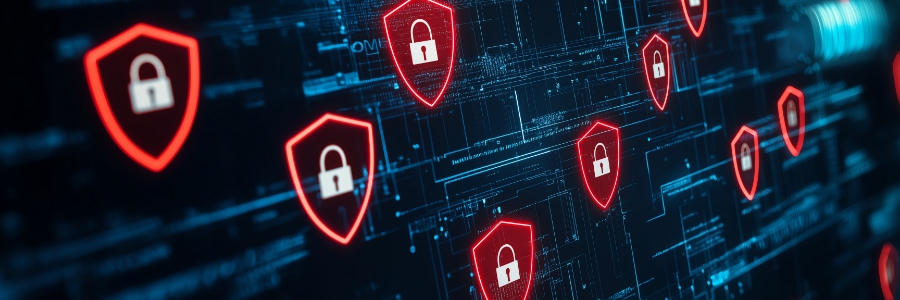With the frequency of cyberattacks growing continuously, you want to ensure that your small or medium-sized business’s (SMB) network is secure. Unfortunately, knowing what is and is not “enough” to protect your IT infrastructure can be difficult, especially if like many SMBs you lack an internal IT department.
Determining if your business’s network is as secure as it needs to be with certainty requires extensive IT knowledge. However, the good news is that you can get a decent idea of your cybersecurity’s effectiveness at a glance by checking key components.
What should you look for when reviewing your cybersecurity?
The next time you assess your cybersecurity, look for these signs that your network isn’t as secure as you think:
You don’t have a cybersecurity policy in place
Without clear cybersecurity guidelines, employees may unknowingly put your network at risk. So, it’s important to create a security policy that outlines safe password practices, remote access guidelines, and procedures for handling sensitive data, among other key guidelines.
You haven’t updated your software in a while
Outdated software is one of the easiest ways for cybercriminals to infiltrate a network. If your operating systems, applications, or security tools haven’t been patched recently, their vulnerabilities likely haven’t been fixed. If you don’t have a regular schedule for patching and updating software, now is the time to start.
Unusual network activity or slow performance
A sluggish network or unexplained spikes in traffic might indicate an ongoing cyberattack. Cybercriminals often use infected machines to send out malware or steal data, causing congestion and performance issues. If your network suddenly feels sluggish for no reason, it’s worth investigating.
Employees use weak or recycled passwords
Weak passwords are a perennial major security risk. If your employees use simple or recycled passwords across multiple platforms, you’re essentially leaving the door wide open for hackers. Additionally, if no password policy is in place or you don’t use a password manager, you are at significant risk of cyberattacks.
You don’t use MFA
If all it takes is a simple password to access your private data, your network is not secure. Multifactor authentication (MFA) secures your network by requiring multiple credentials to log in so that even a breached password is not enough for cybercriminals to steal your data.
You haven’t tested your backups
Having data backups is great, but it’s a mistake to assume they will work perfectly when you need them to. If you assume your data is backed up without verifying restoration procedures, you could be in for a nasty surprise during a ransomware attack or system failure. If it’s been at least six months since your last test, you are out of date and vulnerable.
You’re not using encryption
Data should be encrypted both in transit and at rest. If sensitive information is transmitted in plain text, it can be intercepted by cybercriminals. Check whether your emails, stored files, and communications are encrypted, especially when dealing with customer data.
You’re experiencing frequent phishing attempts
If your employees are receiving more suspicious emails, it could indicate your business is on a cybercriminal’s radar. Phishing attempts often serve as the first step in an attack, tricking employees into revealing login credentials or installing malware.
You haven’t conducted a security audit in over a year
Security threats evolve, and last year’s cutting-edge cybersecurity solutions may no longer be adequate to protect your business against emerging threats. . If you haven’t conducted a cybersecurity audit recently, there could be vulnerabilities you’re unaware of. Regular assessments help identify risks and keep your security measures up to date.
Take the next step to ensure you’re fully secure from the latest cyberattacks
If you’ve determined that your network’s security is not where it needs to be, it’s time to leverage outsourceIT’s deep knowledge and expertise to strengthen your cybersecurity posture. For less than the cost of hiring a single cybersecurity officer, you can benefit from a full team of professionals who will implement, monitor, and maintain a suite of enterprise-grade security tools for you.

